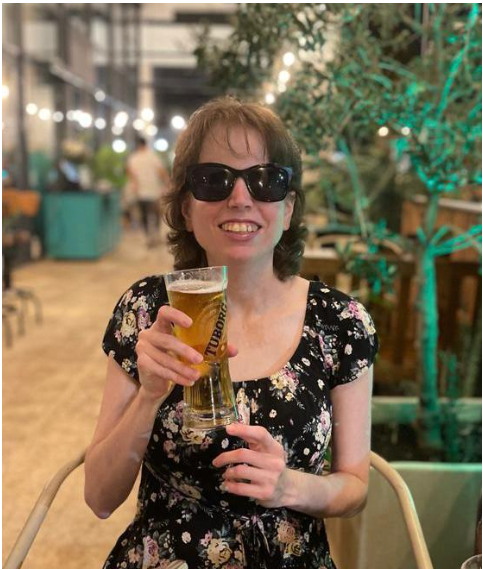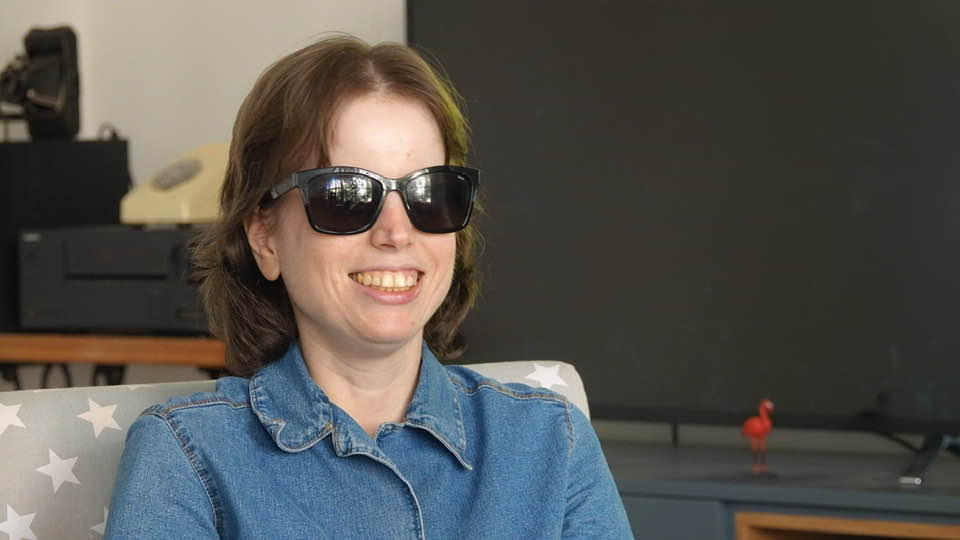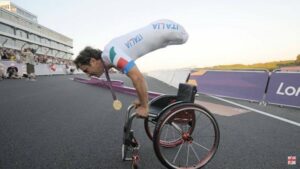“A blind person is a human being who happens to be blind not a blind being who happens to be human.” – Tali Sarnestzky.
Tali lost her sight at the age of three. But she won a battle against cancer in the process. Since then, she’s gone on to win many of life’s battles. And it’s all being through sheer courage and determination. During a routine interview, we learned six valuable lessons about being human from Tali and we’d like to share them with you.

1. A disability doesn’t define a person.
You might have heard this phrase before. What does it really mean though? Growing up, Tali had lots of friends, some of whom had disabilities. Tali and her friends were brave enough to accept who they were, and in doing so, they realized that having a disability didn’t mean their lives had to go a certain way.
They understood that they could define paths for themselves however they wanted. As long as they put their minds to it, they could achieve it. In line with this epiphany, Tali and her friends came up with the saying “A blind person is a human being who happens to be blind not a blind being who happens to be human.”
2. Success is relative
What is the ultimate measure of success? It’s quite likely your answer may be different from someone else’s. We asked Tali about notable achievements in her life and she cheerfully replied,
“Going to high school and college — I consider graduating college an achievement”.
Tali went on to explain that graduating from college was something she wanted to do and she did it. For her, graduating with a degree in Literature from a university in the United States was a notable achievement.
3. Accessibility Is Empathy
Tali believes that accessibility is much more than installing ramps at supermarkets and accessible parking. She believes that if she were to walk into a restaurant and the store attendant walked up to her to find out how they could be of assistance; that is accessibility.
The empathy shown by one human being to another, not the robotic behavior people exhibit simply because they’ve complied with accessibility regulations. For Tali, accessibility is about showing that you know the person with a disability is human like you and offering to help when and where you can.
4. Be inspired to inspire others.
When asked about her greatest inspirations, Tali said her parents were her biggest source of inspiration.
“They were consistent and they led by example. It made me feel like I could trust whatever they told me. It made learning from them easy and practical.”
Tali explained that she’s also inspired by the actor — Sir Anthony Hopkins because of his acting style. “Watching Silence of the lambs was fascinating because I felt like I could really get something from the experience of watching a movie”, Tali explained.
Tali is also inspired by Access Israel, an organization that empowers and supports people with disabilities in Israel. They also advocate for a change in societal attitude towards people with disabilities — by encouraging people to have conversations with and listen to people with disabilities. Tali noted that drawing strength from her inspirations was pivotal for her achievements and successes.
5. Being independent is a choice.
Independence isn’t defined by not needing help, rather, it is the practice of deciding when you want to do things on your own. For Tali, this definition of independence holds true. She’s happy to be able to do things on her own — like traveling abroad for college — but she also welcomes assistance when she needs it.
Tali also notes that using a website screen reader to access the internet is crucial to her independent lifestyle. She enjoys surfing the web and reading insightful articles.
6. Find the courage to live above difficulty.
Growing up, Tali experienced challenges at various times. It wasn’t easy figuring life out as a blind adolescent girl. But she had a support system to encourage and inspire her. Her advice for people with disabilities who are going through rough patches is:
“You won’t break, you won’t die. You will be depressed, frustrated, and may be in despair, but life is stronger than all of this. If you have a good support system, great determination, and good professional help, then you’ll be okay.”
Closing Thoughts
Tali currently works at the Israeli power company as a secretary and she is Equally AI’s consultant on enhancing experiences for people with disabilities. A big part of what makes her successful at her job are the humans with empathy who design accessible interfaces for the web.
As humans, accessibility should be a part of who we are. We shouldn’t need regulations in order to show empathy and kindness to people with disabilities. Making your website accessible may seem like a small step for you but it is a giant leap in the right direction — making the internet accessible to people with disabilities.




